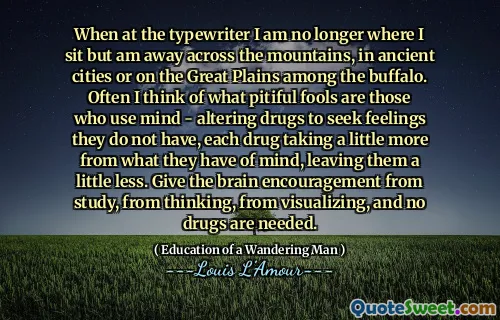
Knowledge is like money: To be of value it must circulate, and in circulating it can increase in quantity and, hopefully, in value.
The analogy between knowledge and money underscores a fundamental truth about growth and dissemination. When we acquire knowledge, it begins as a personal asset, confined within our minds or notebooks. The real value, however, manifests when we share that knowledge with others. Just as money needs to circulate through transactions to generate economic growth, knowledge must flow through conversations, teachings, and writings to foster collective progress. Sharing knowledge not only benefits others but also enriches our own understanding, prompting us to revisit, refine, and deepen our insights. Moreover, circulation prevents stagnation. Knowledge that remains hidden or unused loses its potential impact. In educational contexts, this principle emphasizes the importance of teaching, collaboration, and open dialogue, ensuring that knowledge doesn't become a static possession but a dynamic resource that fuels innovation and development. It hints at a democratic view of knowledge—as something most valuable when accessible and actively exchanged—rather than hoarded or kept secret. In the broader scope of society, an environment where knowledge is freely exchanged accelerates advancements in technology, culture, and social justice. Ultimately, this circulation of knowledge builds a more informed, capable, and resilient collective. This perspective champions the idea that growth—whether personal or societal—in knowledge is a continuous process fueled by sharing, which sustains progress over time.







